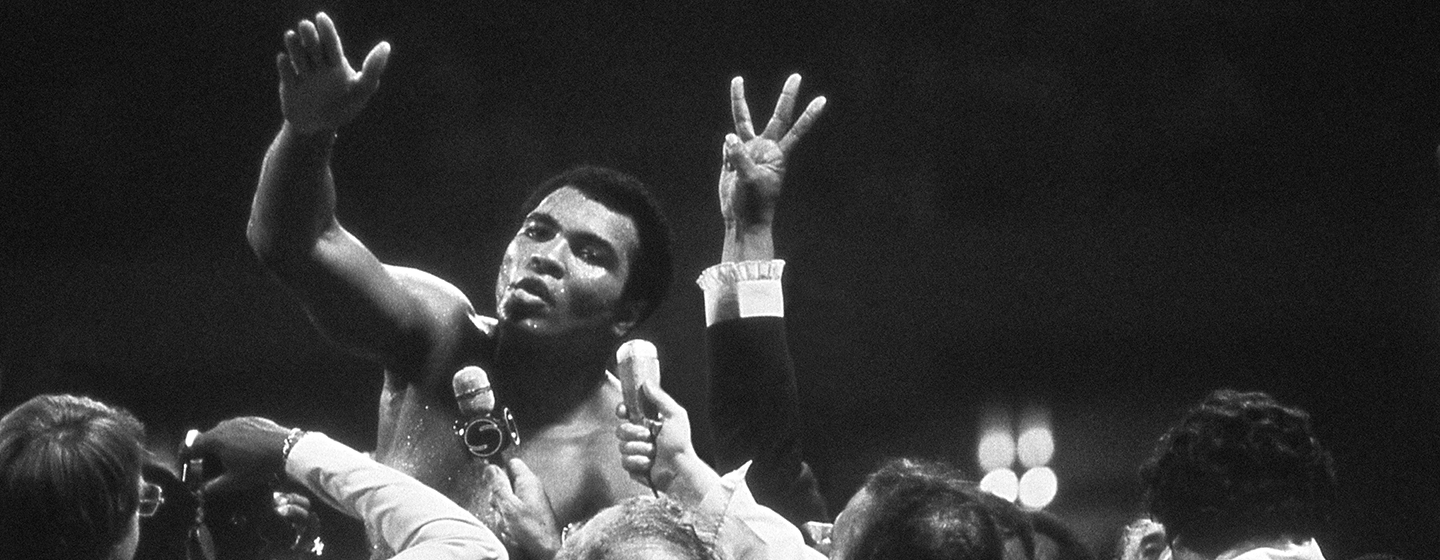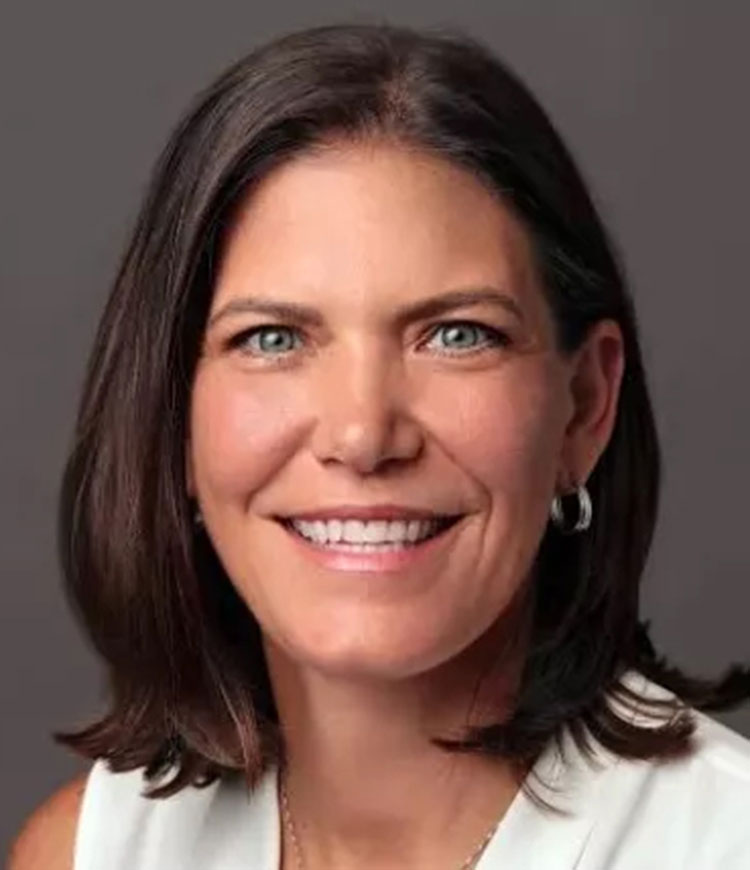PBS Swings for Streaming Knockout with Ken Burns' ‘Muhammad Ali’ Doc
Burns' latest multipart project will unspool on the new 'PBS Documentaries' channel Sunday, bolstering PBS' for-profit initiatives led by Andrea Downing

The smarter way to stay on top of the streaming and OTT industry. Sign up below.
You are now subscribed
Your newsletter sign-up was successful
Ken Burns and co-directors Sarah Burns and David McMahon have another knockout project on their hands with Muhammad Ali, a four-part, 7 1/2-hour deep dive into the man considered by many the greatest boxer of all time, and one of the most complicated and divisive figures of the 20th Century.
Making sure that project gets seen by as many people as possible, a key PBS value, while also helping keep PBS going financially, is Andrea Downing’s job. She’s president of PBS Distribution, walking a complex line between those competing priorities and the parent organization’s government mandate to provide access to educational programming.

PBS Distribution is a separate limited liability corporation owned by PBS and the big Boston station WGBH. Perhaps unexpectedly, it’s also a for-profit company. Downing, who came to PBS 20 years ago from Discovery, has been working in distribution for the organization since the days when DVDs were the main alternative distribution option. Her organization still does a bit of that, as the overall TVOD business remains a sturdy $2 billion market segment.
About a dozen years ago, PBS got into streaming, initially licensing content to Netflix and Amazon, and then rolling out a series of niche VOD services on Amazon Prime’s Video Channels offering.
“And what we really did is, we decided to be very intentional about our strategy, which is to launch specialty or niche channels,” Downing said. “So we started with PBS Kids. And then we launched PBS Masterpiece. We launched PBS Living, and then we launched PBS Documentaries back in August of 2021.”
That niche approach is paired with free online access to some PBS programming through the PBS Video app, which is available on most major streaming platforms from Apple to Vizio. Within the PBS Video app sits Passport, a video service available to local station subscribers who donate at least $60 a year, and get on-demand access to PBS archives, past seasons of current shows, and early premieres. Passport subscribers also get access to all of Burns’ documentaries, more than 30 features and series from Burns and his collaborators.
“It's important that we have content that's available for free, always,” Downing said. “And then Passport becomes the member benefit” for more substantial donors.
The smarter way to stay on top of the streaming and OTT industry. Sign up below.
That bifurcated approach was necessitated because PBS is trying to preserve its unique relationship with its local stations and their subscribers, while maximizing revenue from other interested viewers who don’t want to subscribe.
“We thought long and hard about this, and we wanted to ensure that the value proposition for PBS Passport is the strongest proposition,” Downing said. “In that $60 a year, you're a (station) member, you get Passport, which is a broader service, and you have your direct relationship with your local station. So these (Prime) channels, they're all at different price points. So you, if you have an affinity, you can certainly go there, but we’re very intentional about Passport being the best value proposition for members.”
Downing said she works closely with Ira Rubenstein, PBS’ chief digital and marketing officer, to balance the two sides of the organization’s distribution, while getting maximum reach for its programming beyond the traditional footprint of local broadcast stations and their subscribers.
“Ira and I are partners in everything that we do,” Downing said. “He is managing distribution for the free-based distribution, and I run the fee-based distribution, so we're very much coordinated. And our goal is to ensure that our distribution is better and broader than that PBS TV ecosystem, which is complex, versus just one or the other.”
The Muhammad Ali documentary is one example of the full-court press that PBS does with major projects. It debuts at 8 pm Sunday on the PBS Documentaries Prime channel, and also will stream for free on PBS.org and the PBS Video app.
Importantly, Downing said the programming on Prime Channels has been “really great in terms of continuing to grow the company and provide income that goes back into the purchase of more programming and services. We can think differently about content and bringing in more content, more digital short-form content, as well as long-form content.”
This month, the Prime Docs channel also will add biographical projects about Jimmy Carter and Ronald Reagan, U.S. Supreme Court Justice Sandra Day O’Connor, and actor Raul Julia, several NOVA science documentaries, and Frontline investigations of 9/11 and Boeing jet problems, among others
The two sides of the PBS operation have also experimented with different release patterns, to try to maximize reach and revenue. One example, Downing said, was a British show set in India called Beecham House, which ITV cancelled after one season.
Rather than taking that one season to broadcast first, PBS made it available both through its free online service and Passport, as well as the for-pay Masterpiece channel on Prime in March, 2020. Beecham House didn’t arrive on the broadcast schedule until the following January.
“So it was a great opportunity to pilot,” Downing said. “And we got great lift and bumps. And then we didn't put it into the broadcast schedule until the following January, where we then got a second bump. So it worked for public television, for the free side as well as the revenue side.”
Downing also oversees international operations such as a PBS America channel in the United Kingdom and Australia, and PBS Kids branded channels in Sub-Saharan Africa and Australia. For now, however, the company is sticking with the Prime Video Channels approach as a low-cost way to extend its reach and revenues, rather than attempting to add standalone SVOD services on other distribution platforms.
“Like everyone, we're going to continue to evaluate our strategy as the market changes and we're going to adapt as needed,” Downing said. “Right now it works for us, not only because of the managed-service part and taking care of the investment upfront, but it also enables PBS Passport to be on all of these other distribution platforms more prominently. Our goal with these channels is really to support PBS Video, Passport and multiple stations.”
David Bloom of Words & Deeds Media is a Santa Monica, Calif.-based writer, podcaster, and consultant focused on the transformative collision of technology, media and entertainment. Bloom is a senior contributor to numerous publications, and producer/host of the Bloom in Tech podcast. He has taught digital media at USC School of Cinematic Arts, and guest lectures regularly at numerous other universities. Bloom formerly worked for Variety, Deadline, Red Herring, and the Los Angeles Daily News, among other publications; was VP of corporate communications at MGM; and was associate dean and chief communications officer at the USC Marshall School of Business. Bloom graduated with honors from the University of Missouri School of Journalism.

